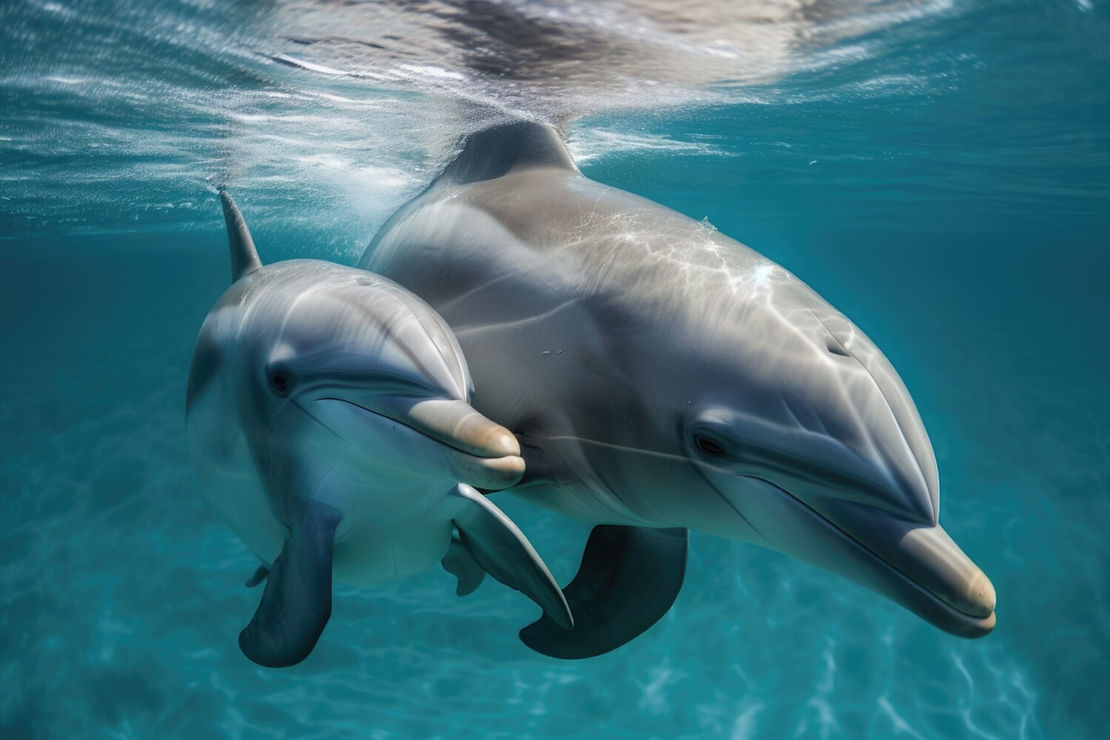By: Nina He
We were all babies once—and chance is, our parents used baby talk on us. But humans aren’t the only ones with baby talk. Surprisingly, dolphins do too!
A study in Florida was published on June 26th in the Proceedings of the National Academy of Sciences. It included 19 bottlenose dolphin mothers. The 19 dolphins all had their own signature whistles, which is as close to a name for a dolphin as you could get.
Co-author Laela Sayigh, who was part of the study and a Woods Hole Oceanographic Institution marine biologist in Massachusetts described the signature whistles. “They use these whistles to keep track of each other. They’re periodically saying, ‘I’m here, I’m here.’”
In the study, the researchers have recorded the dolphins’ call when they’re swimming with other dolphins and when they’re with their babies.
When the mothers talked—or signaled—to their offspring, they used a sound more high-pitch than their normal whistles and their pitch range is greater than usual.
“That was true for every one of the moms in the study, all 19 of them,” said biologist Peter Tyack, a co-author from the University of St. Andrews in Scotland who was in the study.
For over three decades, scientists and researchers have been placing special microphones onto the same dolphins in Florida’s Sarasota Bay and recorded their whistles. These recordings lasted when calves were still with their mothers, which is three years or longer.
Mauricio Cantor, an Oregon State University marine biologist who was not involved in the study, said, “This is unprecedented, absolutely fantastic data. This study is the result of so much research effort. ”
It’s not clear why people and other animals use baby talk, but scientists think it’s because it helps young babies learn how to talk. Research from the 1980s to now suggests that using a higher pitch might help the babies pay more attention. Since dolphins are playful, it might be hard to catch the baby’s attention, so another reason for the high-pitched whistle might be to catch their attention.
“It’s really important for a calf to know ‘Oh, Mom is talking to me now’ versus just announcing her presence to someone else,” said Janet Mann, a marine biologist at Georgetown University. She wasn’t involved in the study.
Even though the reason for the high-pitched whistle isn’t clear, it’s obvious that the mothers’ are doing it for a reason, and that reason might just have to do with love.











